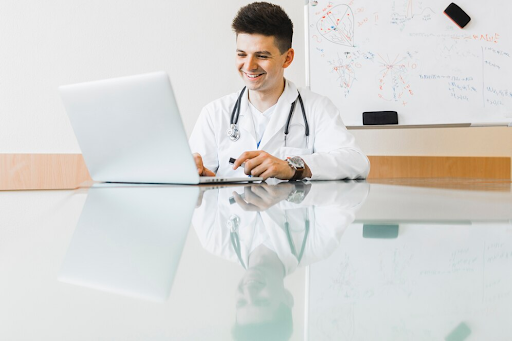Georgia has become a popular choice for international students seeking an MBBS degree because its government-funded universities provide high-quality education at affordable, subsidized fees. These universities are internationally recognized and accredited by reputable organizations such as the Medical Council of India (MCI), the National Medical Commission (NMC), the World Health Organization (WHO), and the Foundation for Advancement of International Medical Education and Research (FAIMER).
However, one key concern for students is whether they can work while studying to support themselves financially. The good news is, yes, you can work part-time! In this blog, we’ll look at the rules of MBBS study visas in Georgia for international students, focusing on the visa type and what it says about working while studying. We’ll also talk about the types of jobs you can find. Understanding these guidelines is important to avoid any immigration issues. Whether you want to gain experience or earn some extra money, this information will help you make the right choices. Let’s get started!
Student Work Visa Rules and Guidelines
Student Visa (Type D3)
To study in Georgia, you must obtain a student visa, referred to as Type D3. This study visa for MBBS in Georgia allows international students to enter and stay in Georgia for the duration of their studies. To obtain this visa, you will need to apply at the nearest Georgian embassy or consulate in your home country.
The application process generally requires you to present an acceptance letter from a recognized educational institution in Georgia, along with several other important documents. These typically include a valid passport, a completed visa application form, proof of financial stability (such as bank statements or scholarship letters), health insurance coverage, and passport-sized photographs.
Registration
After you arrive in Georgia, it is mandatory to register your visa to register with the Public Service Development Agency (PSDA) of Georgia within 40 days of your arrival. To register, you will need to provide your visa, passport, and a letter of acceptance from your educational institution.
Work Rights
For students holding a Type D3 visa, a separate work permit is generally not required for part-time employment. You are permitted to work part-time while pursuing your studies. This work can help you gain practical experience in your field and support yourself financially. Generally, students are allowed to work up to 20 hours per week during the academic year, and they often have the opportunity to work full-time during university holidays, which typically means up to 40 hours per week.
Compliance with University Regulations
It is also important to note that different universities in Georgia may have specific rules regarding student employment. Before accepting any job offer, you should consult your university’s international student office to understand any restrictions or guidelines related to working while studying. Some universities may allow limited on-campus roles.
Taxation
If you earn a certain amount that exceeds the monthly minimum wage while working in Georgia, you may be subject to taxation. It is important to familiarise yourself with local tax laws to ensure compliance.
Suitable Part-time Jobs for an MBBS Student in Georgia
Here are some suitable part-time job options for students in Georgia on MBBS Study Visa:
Research Assistant
Many universities and medical institutions offer research positions that allow students to assist professors or doctors in ongoing medical research. This role can enhance your learning experience and lead to valuable connections in the field.
Medical Internships
Clinics and hospitals often offer internship programs for medical students that provide hands-on experience in a clinical setting, allowing you to apply your knowledge while gaining practical skills.
Tutoring
A flexible job that fits around your class schedule can be teaching; if you excel in certain subjects, consider tutoring fellow students or younger pupils in subjects like biology, and chemistry.
Hospital Volunteer
While not a paid position, volunteering at a hospital or clinic can provide invaluable experience and help you build your resume. Many organizations appreciate the support, and it may lead to future job opportunities.
Part-time Research at NGOs
Some non-governmental organizations (NGOs) focus on health-related issues and may need part-time researchers or assistants.
Administrative Work
Medical schools and hospitals hire students for administrative tasks, such as filing, scheduling appointments, or helping with patient records. This can provide insight into the healthcare system while earning an income.
Conclusion
As you focus on your studies in Georgia, remember that the choices you make today regarding work will impact your future. By staying informed and compliant with work regulations, you are investing in your long-term career success and building a strong foundation for your professional life.
Start your medical career with an MBBS study visa in Georgia! Trust GMRS Consultants for exceptional immigration consultant service. Connect with us today.


